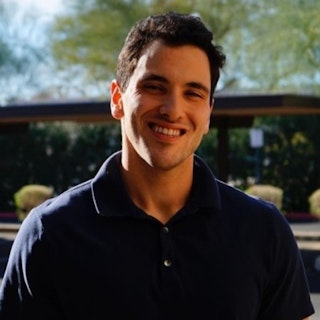Beauty is in the eye of the beholder - how the industry appeals to new consumers
Perspectives from Braze, Nivea Beiersdorf, Publicis Groupe and Accenture detail how the face of the beauty industry continues to showcase itself.

Braze orchestrated a panel full of top marketers to detail how the world of beauty continues to make a lasting impression
The quintessential quality of beauty is it allows one to present themselves in a way that appeals to both themselves and others. Companies are continuing to evolve their own presentation.
Astha Malik, chief business officer of Braze, orchestrated a panel of top marketers from Nivea Beiersdorf, Publicis Groupe and Accenture to detail how the world of beauty continues to make a lasting impression.
The modern state of beauty
The beauty industry has evolved rapidly over recent years. Breaking away from timeless norms and traditional marketing, today’s consumer craves personalization in a modern fashion.
“Luxury is very different today,” says Nivea Beiersdorf’s vice-president, Tobias Collée. “Luxury is if a product works for you. It doesn’t have to be expensive or appear in a very expensive bottle or shape. If it makes you feel good, this is luxury.”
Advertisement
“It’s about making yourself feel better,” says Carly Bedford, global client lead, Publicis Groupe. “What I like about the beauty industry is it’s fun and it’s trying to be fun for consumers. It doesn’t really try to be much else other than making people feel good about themselves. Little touches like skincare, particularly over Covid-19 where everyone was not wearing potentially as much makeup but definitely still wanted to make themselves feel better, that’s why we've seen skincare in particular really grow.”
“I'm very impressed by the beauty industry being super reactive,” says Accenture's beauty lead Audrey Depraeter-Montacel. “We have seen a pivot around skincare capacity to do things remotely. And I’m very impressed by the speed of innovation to systematically adapt to a new ask, a new expectation from consumers to launch new products.”
The next generation of consumers
With new beauty users comes new waves of how they’re thinking about the products they buy. Values, price points, and user experience all guide gen Z’s consumer habits.
“If I look to gen Z, compared to millennials, I think the millennials were all about diversity,” says Collée. “It was about skin color, ethnicity, sexual orientation. If I look at gen Z, it’s more about their own values. It’s very much about sustainability but also more about purpose. They’re more price conscious. They don’t have so much money to spend so they really look and see the value for money.”
Advertisement
“They [gen Z] like personalization,” says Bedford. “So they want to be the individual, they want to follow the same trends, they want to experiment more. The way that the beauty industry is adapting to that is by using technology to provide personalization of either colors or skincare and diagnosing what type of hair I have. That’s where the industry is really adapting to the changing perceptions of the consumer and their needs.”
“Millennials were very online while gen Z is online but they also want to experience offline,” adds Collée.
“If you think about all the personalization tools, everything where you can try on the makeup, do any look you want, it’s perfect,” says Depraeter-Montacel. “I think the illustration of using technology online, you can do it in store before you buy or outside of the store, whatever you want, and leveraging technology to have this big tool to help answer “how can we help our consumer or provide something different to the consumer in terms of experience?”
Personalizing products and engagement
Having consumers choose a particular brand calls for tailoring the delivery on the front and back end. Both the products, and the way they’re advertised, need to adapt to fit consumer needs.
“You need to find the right content,” says Collée. “There’s a lot of explaining to them about the product which they [consumers] like.”
Suggested newsletters for you
“If you look at the loyalty program for many years in the beauty industry, it was very standardized,” says Depraeter-Montacel. “The same program, everyone earned points and then you buy things. We’ve seen a shift in the past two years working on new loyalty programs which are much more experiential, qualitative. We’re thinking about what this person will be interested in. Maybe having a discount is not what she or he is looking for. Maybe it’s more access to content or having a specific tutorial.”
“It’s definitely about the experience,” says Bedord. “I don’t know that they’re [consumers] loyal, because they’ve got a repertoire of brands. But within that repertoire, I'm sure there’s some common themes of skincare. The loyalty programs that we’ve been working on are definitely much more focused on how the experience ties into the brand. So that connection has become really important because otherwise inauthenticity could then come through.”
Catch up on the full ‘Glowing engagement’ panel discussion from Braze in Cannes here.
Content created with:

Braze
Braze is the customer engagement platform for leading brands. We unite data, technology, and teams to create brilliant messaging experiences.
Find out more
